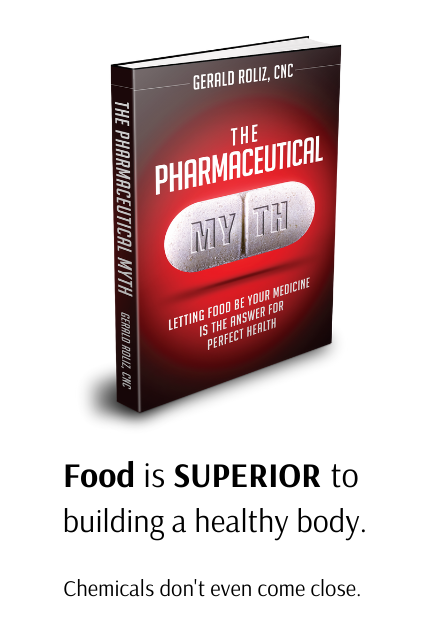Food Protein-Induced Enterocolitis Syndrome (FPIES) is a non-IgE-mediated food allergy affecting about 0.1% of infants in the United States, with a higher incidence in pre-term infants and those with a family history of allergies (1). Symptoms typically appear within 2-4 hours after consuming a trigger food, and can include repetitive vomiting, diarrhea, lethargy, and even paleness and shock in severe cases (2). These reactions are theorized to be due to a T-cell-mediated inflammatory response in the gastrointestinal tract, specifically targeting the small intestine and colon (3). While FPIES cannot be definitively diagnosed through imaging, ruling out other conditions and identifying potential triggers through elimination diets and oral food challenges can be aided by blood tests looking for specific immunological markers (4).
Management of FPIES primarily involves strict dietary avoidance of trigger foods, certain dietary interventions can offer additional support. Eliminating the identified trigger food is crucial, and for breastfed infants, mothers may need to follow an elimination diet to prevent the allergen from passing through breast milk (5). The use of man-made formulas must also be done with caution in the event breastfeeding has ceased. Not knowing which foods will trigger an FPIES reaction and complete avoidance of potential triggers is challenging, leading many parents to reach high levels of frustration and fear, which in turns takes a toll on their own health.
Foods and Nutrients to Consider:
- Elemental formulas: For infants with severe FPIES or complex nutritional needs, elemental formulas that lack intact protein can be used as a temporary source of nutrition while identifying and eliminating triggers (6). Not all formulas are created equal and many contain man-made synthetic vitamins which can stress baby’s liver.
- Prebiotics and probiotics: While the evidence is limited, some studies suggest that prebiotics and probiotics may help modulate the gut microbiome and potentially reduce the severity of FPIES reactions (7). The specific strains and quantities that may benefit each child differs.
- Nutrient-dense alternatives: When excluding trigger foods, ensuring adequate intake of essential nutrients through alternative sources like fruits, vegetables, and fortified foods is crucial for optimal health and development.
Mothers also may have passed heavy metals and chemical toxins onto baby while in utero via the placenta (8). Nursing mothers may also pass on heavy metals and chemicals to newborns. Cadmium, lead, and mercury under normal conditions are found in breast milk and are passed onto baby (9).
Anecdotally, in cases of FPIES, we find that baby’s liver and kidneys are not able to clear toxins or cytokines, hence vomiting/diarrhea results when the toxicity burden exceeds the liver and kidney’s ability to detoxify the body. Baby is predisposed to have an FPIES reaction when toxicity levels are already high and ability to detox is extremely low.
In our history, we have found possible associations:
1. Mother overdosed with synthetic Folic Acid and/or Vitamin B12 supplementation, which subsequently gets passed to baby, leading to clogging baby’s liver and creating a scenario in which any additional toxin or inflammatory food induces a herxheimer like reaction. Historically, we have seen blood tests in mom and baby with elevated (and even considered at a toxic level of) Vitamin B12 and/or Folic acid.
2. The link between tongue tie and oversupplementation of Vitamin B12/Folic acid is becoming more confirmed each year (10). There may be a possible link between tongue tie & MTHFR mutation. This also confirms that liver & kidney detoxification support is required.
3. If child received childhood injections, review our Injection Ingredient blog post and look to support baby’s liver & kidneys to eliminate the chemical and heavy metal ingredients that also burden the detoxification organs.
Your next steps as a parent:
Test mom and baby’s vitamin B12 and folic acid levels and rule out any toxicity.
If mom supplemented with synthetic vitamins during pregnancy, support baby’s natural detoxification pathways with natural solutions. If baby received childhood injections, investigate which ingredients stimulated an IgG response or which ingredients are causing liver/kidney issues. FPIES requires a non-IgE positive test to be officially diagnosed. Medical doctors only check IgE, but not IgG. Consider running an IgG food allergy test in addition to an IgE test. Also conduct environmental toxin and heavy metal testing at the cellular level.
Most importantly, book an initial consultation HERE for mom. We must ensure mom’s heavy metals and chemicals are not being passed through the breast milk. After mom is on a natural health improvement program, we schedule an Initial Consult for baby and start supporting baby’s liver & kidneys to eliminate toxins, avoid triggers, then raise the threshold in which an FPIES reaction takes place. Then slowly, we can support baby to have a decreased potential risk for another reaction. The long term goal is to be able to eat any food and live a healthy life and reach one’s full potential.
References:
- Fiocchi, A., Sicherer, S., & Cohen, J. (2014). Food protein-induced enterocolitis syndrome. Journal of Allergy and Clinical Immunology, 133(2), 369-380.
- Eigenmann, P. A., & Sicherer, S. H. (2009). Food protein-induced enterocolitis syndrome: A clinical update. Current Opinion in Gastroenterology, 25(5), 534-540.
- Sicherer, S. H., Sampson, H. A., & Bock, A. L. (2010). Food protein–induced enterocolitis syndrome: A new understanding of an emerging allergy. Journal of Allergy and Clinical Immunology, 125(5), 1101-1113.
- Kim, J. H., & Sicherer, S. H. (2017). Food protein–induced enterocolitis syndrome: Diagnosis and management. Gastrointestinal Clinics of North America, 46(1), 13-24.
- Dupont, C., & Cohen, J. (2016). Breastfeeding in food protein-induced enterocolitis syndrome: Challenges and solutions. Journal of Allergy and Clinical Immunology, 137(1), 21-27.
- Cohen, J., & Dupont, C. (2013). Management of food protein-induced enterocolitis syndrome. Current Opinion in Pediatrics, 25(5), 541-546.
- Elazab, A., Abushahba, W., Al-Hussaini, A., & Al-Jaafari, A.
- Gundacker C, Hengstschläger M. The role of the placenta in fetal exposure to heavy metals. Wien Med Wochenschr. 2012 May;162(9-10):201-6. doi: 10.1007/s10354-012-0074-3. PMID: 22717874.
- Abadin HG, Hibbs BF, Pohl HR. Breast-feeding exposure of infants to cadmium, lead, and mercury: a public health viewpoint. Toxicol Ind Health. 1997 Jul-Aug;13(4):495-517. doi: 10.1177/074823379701300403. PMID: 9249931.
-
Amitai Y, Shental H, Atkins-Manelis L, Koren G, Zamir CS. Pre-conceptional folic acid supplementation: A possible cause for the increasing rates of ankyloglossia. Med Hypotheses. 2020 Jan;134:109508. doi: 10.1016/j.mehy.2019.109508. Epub 2019 Nov 18. PMID: 31835174.



